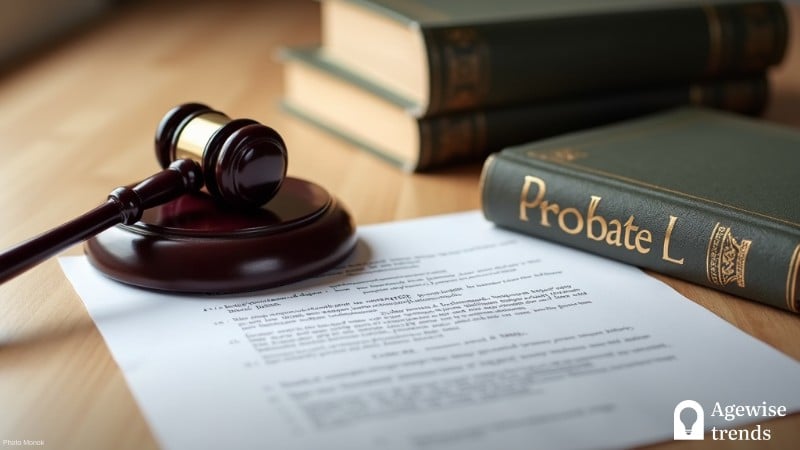No one likes to think about what will happen after they’re gone, but estate planning is one of the most important steps you can take to protect your family’s future. A well-thought-out estate plan gives you control over how your wealth is distributed, who will make decisions on your behalf if you become incapacitated, and how your family will be supported in your absence. Whether you have a large estate or just a few key assets, estate planning is essential for anyone who wants to provide stability for their family.
Here’s how you can create a comprehensive plan that ensures your wishes are honored and your loved ones are protected.
Key Takeaways
This article offers guidance on estate planning to provide lasting peace of mind by protecting a family’s financial security and legal interests.
- Estate planning involves creating legally binding documents, such as wills and trusts, that help distribute assets according to personal wishes and avoid probate.
- Life insurance can replace lost income for dependents and cover future expenses, ensuring that the quality of life is maintained even in unforeseen situations.
- Regular updates to an estate plan are essential due to changes in family circumstances or tax laws, ensuring that the documents remain legally sound and aligned with current needs.
The blueprint for a protected and prosperous family
Many people delay estate planning because they believe it’s something to consider later in life. However, life is unpredictable, and having a plan in place ensures that your family is cared for no matter what happens. A comprehensive estate plan covers more than just distributing assets—it also includes directives for medical decisions, guardianship for minor children, and strategies to minimize taxes and legal fees.
Without a clear plan, your loved ones may face lengthy court battles, financial struggles, or disputes over inheritances. In cases where an individual passes away without a will, state laws determine how assets are divided, which may not align with personal wishes. Estate planning allows you to maintain control over these decisions and ease the burden on your family during an already difficult time.
The legal tools that safeguard your loved ones
At the heart of every estate plan are legally binding documents that clarify your wishes and protect your family’s interests. A will is one of the most fundamental elements, outlining how your assets should be distributed and naming guardians for minor children. Without a valid will, your estate may be subject to state laws that could leave your family with unintended financial consequences.
A trust is another valuable tool, offering greater flexibility and control over asset distribution. Unlike a will, a trust can help avoid probate—a lengthy and expensive legal process—ensuring that beneficiaries receive their inheritance more quickly and with fewer complications. Trusts can also protect assets from creditors, reduce estate taxes, and provide ongoing financial support for dependents.
Additionally, a power of attorney grants someone the power to authorize financial and legal decisions for you if you become incapacitated. A healthcare directive or living will specifies your medical treatment preferences in case you are unable to communicate them, ensuring your family isn’t left guessing about critical healthcare decisions.
Protect your family from financial and legal burdens
One of the key benefits of estate planning is preventing unnecessary financial strain on your family. Without a clear plan, your assets may be tied up in legal proceedings, leading to costly legal fees and potential disputes among heirs. A well-structured estate plan helps streamline the transfer of wealth, reducing delays and expenses.
Life insurance can also play a crucial role in protecting your family’s financial stability. If you have dependents, a policy can replace lost income, cover outstanding debts, and provide for future expenses such as education or housing. It ensures that your loved ones maintain their quality of life even if the unexpected happens.
Tax considerations should also be part of your estate plan. Depending on the size of your estate, federal and state taxes may significantly reduce the inheritance your beneficiaries receive.
Keep your estate plan up to date
Estate planning is not a one-time task—it requires periodic review and updates to reflect changes in your life and financial situation. Major life events such as marriage, divorce, the birth of children or grandchildren, and significant changes in assets should prompt a reassessment of your plan.
Outdated documents can lead to unintended consequences, such as an ex-spouse remaining a beneficiary or a new child being left out of an inheritance. Regularly reviewing your estate plan ensures that your wishes remain aligned with your family’s needs and legal requirements.
Changes in tax laws and estate regulations can also impact your plan. Staying informed and consulting with an estate planning professional can help you adjust your strategy to maximize financial protection for your loved ones.
Get expert guidance for a solid estate plan
While it’s possible to create a basic estate plan on your own, professional guidance ensures that your documents are legally sound and tailored to your specific circumstances. Estate laws vary by state, and even minor errors in wording or execution can lead to disputes or legal challenges.
An experienced estate planning attorney can help you navigate complex issues such as asset protection, tax minimization, and long-term care planning. They can also assist in setting up trusts, establishing guardianship arrangements, and ensuring that your healthcare directives align with state regulations.
Additionally, working with a financial advisor can help you integrate estate planning with your overall financial strategy. They can provide insights on investment management, wealth preservation, and retirement planning, ensuring that your family remains financially secure for generations to come.
Estate planning is a meaningful way to protect your family and provide for their future. Taking these steps today will give you peace of mind knowing that your family is secure, no matter what the future holds.















